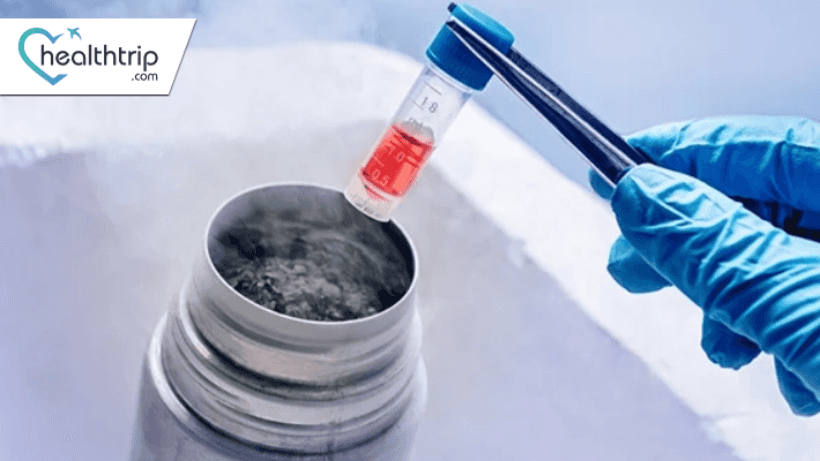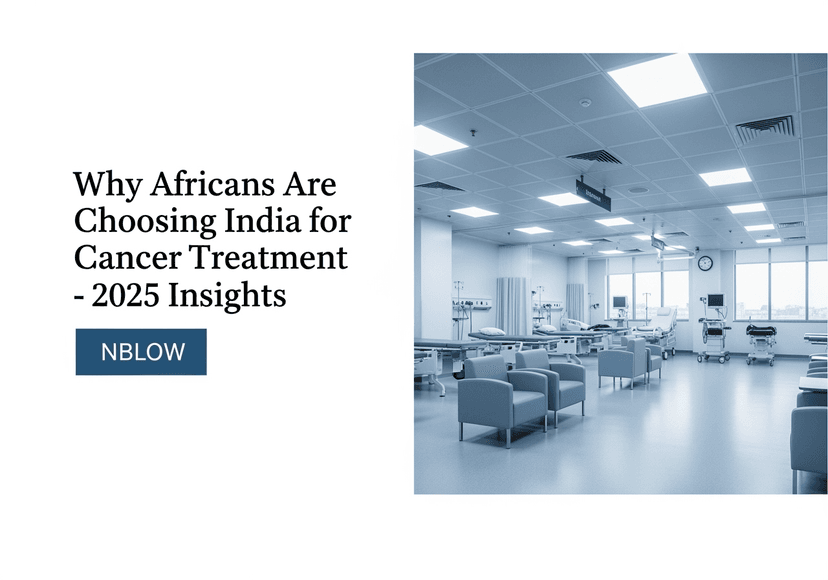
Oocyte Cryopreservation in the UAE: Preserving Fertility for Later
16 Oct, 2023
 Healthtrip
HealthtripIntroduction
In recent years, advances in medical technology have offered new options for individuals who wish to preserve their fertility for later in life. Oocyte cryopreservation, also known as egg freezing, is one such innovation that has gained popularity in the United Arab Emirates (UAE) and around the world. This groundbreaking procedure offers women the opportunity to freeze and store their eggs, providing a safety net for future family planning. This blog will delve into the various aspects of oocyte cryopreservation in the UAE, including its significance, the process, regulations, and the role it plays in empowering women to make informed decisions about their reproductive health.
The Significance of Oocyte Cryopreservation
Oocyte cryopreservation is a medical procedure that involves the retrieval, freezing, and long-term storage of a woman's eggs. The main purpose of this procedure is to preserve a woman's fertility by allowing her to use her own eggs at a later stage in life when natural fertility may decline. The significance of oocyte cryopreservation can be seen in various scenarios:
Most popular procedures in India
1. Delayed Family Planning
In today's society, many women choose to delay family planning due to career goals, educational pursuits, or other personal reasons. Oocyte cryopreservation provides them with the flexibility to have children when they are ready, rather than being constrained by their biological clock.
2. Medical Reasons
Certain medical conditions, such as cancer or autoimmune diseases, may require treatments like chemotherapy or radiation that can damage a woman's eggs. Oocyte cryopreservation offers a way to preserve fertility before undergoing these treatments.
Wellness Treatments
Give yourself the time to relax
Lowest Prices Guaranteed!

Lowest Prices Guaranteed!
3. Reproductive Health Awareness
The availability of oocyte cryopreservation encourages women to be more proactive about their reproductive health. It promotes early family planning discussions and provides a sense of empowerment over one's reproductive choices.
The Process of Oocyte Cryopreservation
The process of oocyte cryopreservation, commonly known as egg freezing, is a medical procedure that allows a woman to preserve her fertility by freezing and storing her eggs for future use. Here's a detailed overview of the steps involved in oocyte cryopreservation:
1. Consultation and Evaluation:
- The process typically begins with an initial consultation with a reproductive specialist or fertility doctor. During this consultation, the woman's medical history, reproductive goals, and overall health are assessed. The doctor will explain the procedure, discuss the woman's reasons for considering egg freezing, and answer any questions.
2. Ovarian Stimulation:
- Ovarian stimulation is a critical phase in the process. The woman will receive hormonal medications that stimulate her ovaries to produce multiple eggs instead of the single egg that is typically released during a natural menstrual cycle. These medications are usually self-administered through injections and are taken over a period of 8 to 14 days.
3. Monitoring and Hormone Testing:
- Throughout the ovarian stimulation phase, the woman will be closely monitored with regular ultrasounds and blood tests to track the development of follicles (fluid-filled sacs in the ovaries containing the eggs) and hormone levels.
4. Trigger Shot:
- When the eggs have reached the desired level of maturity, a final hormone injection known as the "trigger shot" is administered. This prepares the eggs for retrieval.
5. Egg Retrieval (Oocyte Aspiration):
- Approximately 36 hours after the trigger shot, the woman undergoes a minor surgical procedure called egg retrieval. This procedure is typically performed under sedation or anesthesia and takes about 20-30 minutes.
- A thin, ultrasound-guided needle is inserted into the ovaries through the vaginal wall. The needle is used to aspirate (suction) the mature eggs from the follicles. The eggs are collected in a sterile container.
6. Laboratory Processing:
- Immediately after retrieval, the collected eggs are handed over to the embryologist in the laboratory.
- The eggs are evaluated, and any surrounding cumulus cells are removed.
7. Vitrification (Egg Freezing):
- The eggs are frozen using a technique called vitrification. In this process, the eggs are rapidly cooled to very low temperatures, preventing the formation of ice crystals. This is crucial to maintaining the viability of the eggs during the freezing and thawing process.
8. Storage:
- Once the eggs have been successfully vitrified, they are placed in cryopreservation storage tanks, where they can be preserved for an extended period. These tanks are filled with liquid nitrogen, which maintains the extremely low temperatures necessary to keep the eggs in a frozen state.
9. Future Use:
- When the woman decides she is ready to use the frozen eggs to try and conceive, the eggs are thawed and fertilized through in vitro fertilization (IVF). The resulting embryos are then transferred to her uterus.
It's important to note that not all eggs may survive the freezing and thawing process, and the success of future IVF attempts will depend on various factors, including the woman's age and the quality of the eggs at the time of freezing.
Cost of Oocyte Cryopreservation in the UAE:
The cost of oocyte cryopreservation in the UAE can vary depending on the clinic, the number of eggs to be frozen, and additional services or medications required. On average, it may range from approximately, AED 15,000 to AED 30,000 or more.
1. Varied Costs:
- The cost of oocyte cryopreservation can vary widely depending on several factors, including the location of the clinic, the specific services offered, and the number of eggs to be frozen.
2. Consultation Fees:
- Initial consultation fees and evaluations may be an additional expense, as these visits are crucial for assessing a woman's eligibility and suitability for the procedure.
3. Medication Costs:
- Hormonal medications used for ovarian stimulation, as well as the trigger shot to prepare the eggs for retrieval, can contribute significantly to the overall cost.
4. Monitoring and Tests:
- Regular ultrasounds and blood tests to monitor the development of follicles and hormone levels may incur extra charges.
5. Egg Retrieval Procedure:
- The surgical procedure for egg retrieval is typically included in the overall cost, but this may vary depending on the clinic and the type of anesthesia used.
6. Vitrification and Storage:
- The process of vitrification (egg freezing) and long-term storage of the frozen eggs is another component of the cost. Storage fees are often charged on an ongoing basis, typically annually.
7. Package Deals:
- Some clinics may offer package deals that include multiple services bundled together, which can help reduce the overall cost compared to paying for individual components separately.
8. Financing Options:
- Many fertility clinics offer financing options or payment plans to make oocyte cryopreservation more affordable. These options can help distribute the cost over time.
9. Insurance Coverage:
- In some cases, health insurance plans may provide coverage for certain aspects of fertility preservation, including oocyte cryopreservation. It is advisable to check with your insurance provider to see if any expenses can be reimbursed.
10. Additional Costs:
- It's important to inquire about any potential additional costs, such as fees for using the frozen eggs in future IVF procedures.
11. Price Transparency:
When considering oocyte cryopreservation, it's advisable to ask for a breakdown of costs and a detailed quote from the chosen clinic or healthcare provider to understand the full financial picture.Risks and Considerations
1. Age-Related Success:
- The younger a woman is when she freezes her eggs, the higher the chance of success. As women age, the quality and quantity of their eggs decrease, which can impact the success of future IVF attempts using the frozen eggs.
2. No Guarantee of Success:
- Oocyte cryopreservation does not guarantee a successful pregnancy. Not all frozen eggs will survive the thawing process, fertilize successfully, or result in viable embryos. Success rates can vary.
3. Financial Considerations:
- Oocyte cryopreservation can be costly, and there are several expenses to consider, including consultation fees, medication costs, storage fees, and potential future IVF costs. Financial planning is essential.
4. Ethical and Legal Factors:
- Some regions or cultures have specific regulations or ethical considerations related to oocyte cryopreservation. It's important to be aware of these and ensure that the procedure aligns with your beliefs and values.
5. Emotional and Psychological Impact:
- The process of oocyte cryopreservation can be emotionally challenging. It may raise complex feelings about fertility, family planning, and the timing of pregnancy. Emotional support or counseling may be necessary.
6. Limited Storage Duration:
- Eggs can typically be stored for an extended period, but there may be a limit to how long they can be preserved. Be aware of storage duration limits and the associated costs to avoid unexpected issues.
legal and ethical considerations
1. Cultural and Religious Norms:
- Legal and ethical guidelines for oocyte cryopreservation can be influenced by the cultural and religious beliefs of a region, impacting who can access the procedure and under what circumstances.
2. Marriage Requirement:
- Some areas, such as the UAE, may require that women be married to access oocyte cryopreservation, reflecting cultural and legal norms.
3. Informed Consent and Autonomy:
- Ethical principles emphasize patient autonomy and informed consent. Women must provide informed consent, fully understanding the process, potential risks, and future use of their frozen eggs.
4. Privacy and Confidentiality:
- Protecting the privacy and confidentiality of women undergoing oocyte cryopreservation is an ethical imperative, ensuring that their information is not disclosed without consent.
5. Legal Regulations:
- Legal regulations may govern various aspects of oocyte cryopreservation, such as clinic licensing, storage duration, and disposal of frozen eggs in specific circumstances, ensuring compliance with the law.
The Future of Oocyte Cryopreservation in the UAE
As the UAE continues to embrace and regulate oocyte cryopreservation, we can expect to see several developments and improvements in this field:
1. Increasing Access
While oocyte cryopreservation is currently more accessible to married women, we may see broader access in the future, reflecting changing societal norms and an increasing emphasis on individual choice.
2. Technological Advancements
The field of reproductive medicine is constantly evolving. We can anticipate improvements in egg freezing techniques, making the process more efficient and increasing the chances of successful IVF outcomes.
3. Education and Awareness
Efforts to raise awareness about oocyte cryopreservation and reproductive health will continue. Women in the UAE will have more resources and information to make informed decisions about their fertility.
4. Collaborative Research
Collaboration between medical institutions, researchers, and regulatory bodies will contribute to the advancement of the field. This may lead to better outcomes, reduced costs, and improved success rates.
5. Ethical Considerations
As the field evolves, ethical discussions surrounding oocyte cryopreservation may also evolve, with a potential shift in societal attitudes towards who should have access and under what circumstances.
In Closing
Oocyte cryopreservation in the UAE is more than just a medical procedure; it's a testament to the country's commitment to progress, healthcare excellence, and women's empowerment. By offering women the opportunity to take charge of their reproductive futures, the UAE is shaping the future of family planning and fertility preservation. As advances continue and awareness grows, oocyte cryopreservation will undoubtedly play a pivotal role in ensuring that women can make choices about when and how they want to start a family, ultimately leading to healthier, more informed, and more fulfilling lives for all
Related Blogs

Getting a Second Medical Opinion from Indian Doctors – 2025 Insights
Explore getting a second medical opinion from indian doctors –

Post-Surgery Recovery Tips for International Patients – 2025 Insights
Explore post-surgery recovery tips for international patients – 2025 insights

Why Africans Are Choosing India for Cancer Treatment – 2025 Insights
Explore why africans are choosing india for cancer treatment –

Top Reasons Patients Choose India for Medical Travel – 2025 Insights
Explore top reasons patients choose india for medical travel –

HealthTrip vs Other Medical Tourism Platforms: A Comparison
Learn more about healthtrip vs other medical tourism platforms: a

Top 10 Hospitals in India for Cardiac Surgery
Learn more about top 10 hospitals in india for cardiac










